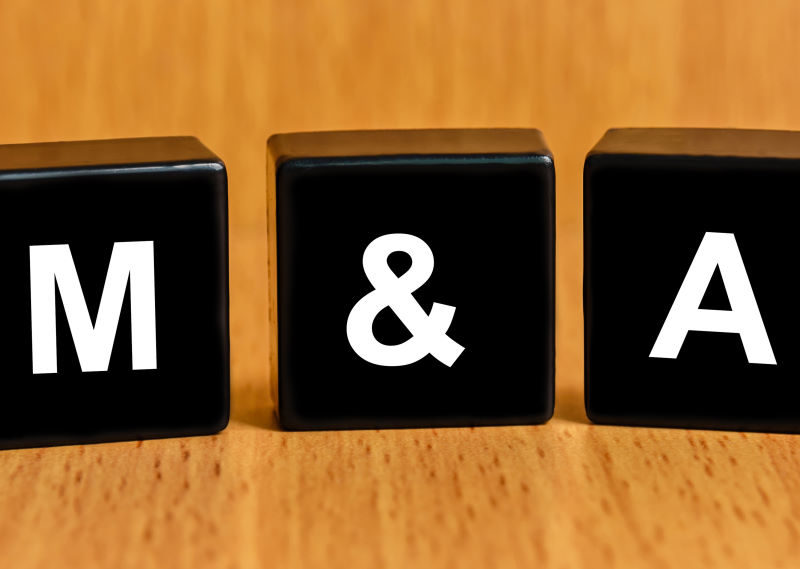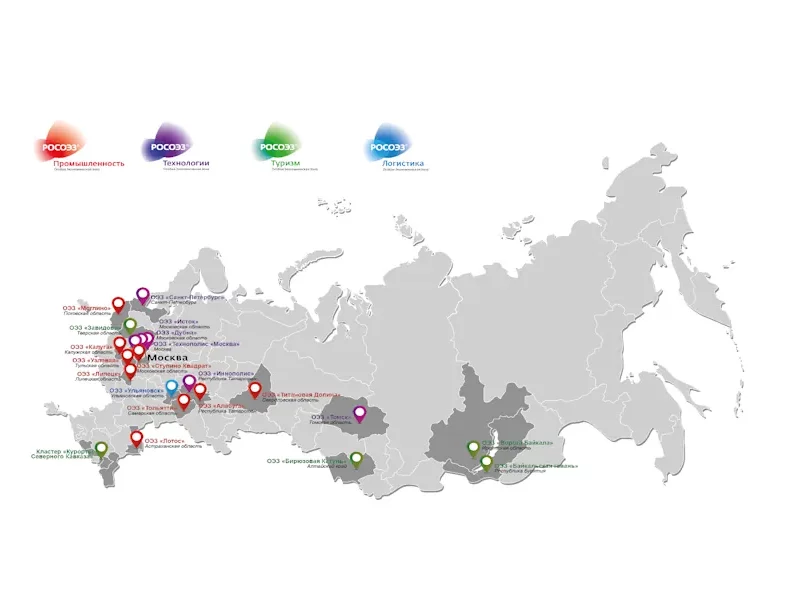The execution of merger and acquisition agreements takes place in several stages. One of the key stages is Due Diligence (DD). Despite the predominantly greater spread in Western countries, Due Diligence is becoming more and more popular in the CIS countries and in Russia, in particular.
As you know, due diligence implies a business verification procedure before mergers and acquisitions. Of all the types, the most popular are:
- Financial Due Diligence to assess the economic condition of the business.
- Legal Due Diligence to assess from the point of view of compliance with the requirements of the legislation of various aspects of the business.
- Tax Due Diligence is aimed at studying tax audits in the past, identifying the company’s obligations and possible consequences within the framework of agreements.
- In some cases, marketing, IT Due Diligence, etc. may be required.
Due Diligence is crucial in the process of concluding M&A transactions for the sale and purchase of assets.
These agreements can be divided into the following stages:
- Making a decision about buying or selling a business and hiring an M&A consultant. In most cases, they are global investment banks, as well as firms with staff that specialize in small and medium-sized enterprises.
- Further, the consultants on the basis of the contract on behalf of the client draw up an information memorandum and look for potential investors.
This stage is characterized by defining the goals of the business owners, assessing the value of the company and choosing the cost range within which the company’s price can be changed.
Next, a list of potential investors or buyers is compiled, with whom further communication is conducted at the following stages.
- Start of negotiations with possible buyers. The circle of interested persons with whom an agreement on non-disclosure of confidential information can subsequently be concluded is established.
- The buyer, after reviewing the information about the business under the M&A agreements, launches Due Diligence. For this purpose, an independent consulting company is hired, which, at the expense of the buyer, conducts a check on the principles of neutrality and objectivity, and conducts a risk assessment. After that, the consultant’s opinion is provided to the buyer in the form of a report.
- Taking into account the results of DD, as well as other factors, the buyer decides to accept the contract.
- The parties agree on the price and prepare the contract. The contract must be agreed with the regulator, after which the parties sign a purchase and sale agreement, and the process of closing M&A contracts for the sale and purchase of assets begins.
When and why do due diligence?

In the case of M&A agreements resulting from the merger of two joint-stock companies, it is necessary, in addition to assessing possible risks and identifying material information, to also assess the effect of a merger or acquisition.
Investors are interested in making a profit that an asset can generate. Buyers of assets reasonably assume that Due Diligence will reduce the risk of loss or depreciation of the asset for reasons that the seller of the asset has hidden.
To date, the regulatory legal acts in force in Russia in practice do not provide full transparency and reliability of official financial reports.
Actual financial indicators are often distorted for various reasons, which makes it difficult to objectively assess the value of a company or asset based on accounting data.
Goals and objectives of Due Diligence
In the process of due diligence, a financial audit and a legal audit of a business or a certain asset are carried out. In world practice, there is a requirement that the valuation of assets under M&A contracts is thoroughly tested.
The procedure is a comprehensive analysis of the entire system of relationships in the company, the level of interaction with the environment. It is customary to conditionally divide the procedure into several blocks, which differ from each other both in terms of goals and methods of conducting:
- Analysis of operational business development, the main directions in this case are: development history, organizational structure, management, personnel, preparation of SWOT analysis, identification of constraining factors;
- A financial audit gives an opinion on the ability of an enterprise to generate income;
- Analysis of debts or inspections by the tax service in relation to the business allows you to assess the tax burden of the company;
- Legal due diligence allows you to evaluate the functioning of a business in accordance with the requirements of regulatory legal acts;
In addition to the above, there are other stages that do not always need to be carried out. Depending on the objectives of the analysis, market position analysis, marketing analysis and IT analysis are also carried out.
Summarizing, it can be noted that Due Diligence is an extremely important stage before making M&A agreements for the sale and purchase of assets. This is explained by the fact that the cost of due diligence pays off the risk of possible negative consequences in the absence of this procedure.
Due Diligence Verification Steps

Conditionally, Due Diligence is divided into the following stages, each of which begins after the completion of the previous stage:
- Creation of a working group responsible for conducting Due Diligence. The Working group includes specialized lawyers, tax and financial specialists, including accountants, economists, auditors.
- Collection of all necessary documentation regarding the subject for the purpose of subsequent analysis. Since the owner of the asset provides activity data, he is interested in their confidentiality, otherwise, in case of refusal of the agreement, the buyer will receive data about the company. For this reason, an Agreement on non-disclosure of confidential information is concluded at this stage. Only after that, the working group that carries out Due Diligence is given all the requested information. These include financial statements for previous periods, contracts with suppliers, intellectual property rights, information on the structure of the share capital, information on litigation, etc. The buyer seeks to gain a clear understanding of the financial condition of the business, legal and tax nuances of the acquired business within the framework of M&A agreements for the sale and purchase of assets.
- The study of all the information received. During this stage, the working group determines the level of detected risk and its consequences, up to the rejection of the transaction. Often, the information obtained allows you to add additional points to the structure of the transaction or change its value.
- Conclusion in the form of an independent report as a result of due diligence. The report outlines all the components of the business, the problems found as a result of the due diligence process, as well as other aspects that were found satisfactory. After all this, the buyer decides on the transaction based on the data received and an independent assessment by the group conducting the audit, evaluates the transaction and decides on its implementation.
Before making a final decision within the framework of M&A contracts for the sale and purchase of assets, the buyer is primarily interested in:
- in verifying the accuracy of the information received from the seller;
- in finding confirmation of the assumptions that are laid down in the business plan;
- Ensuring that the relevant documentation is accurate for compliance with the current legislation of the country;
- In the case of a merger, the top management of the business is able to plan for the development of the company and implement a strategy to achieve its goals.
The main reasons why Due Diligence is an indispensable procedure can be called:
- obtaining truthful evidence about the real state of affairs in the company;
- collecting the necessary information that will make it possible to really assess the situation and help in the negotiation process;
- identification of the company’s compliance with the investor’s criteria.
- finding factors that can prevent the conclusion of an agreement within the framework of M&A contracts for the sale and purchase of assets;
In the established international practice, it is customary to organize a meeting of the working group with the top management of the company for a preliminary acquaintance on the first day of work.
To obtain the necessary data, the working group establishes contact with the company’s accountants, requests accounting documentation for the last few years, in the case of tax documentation, the depth of verification reaches up to 5-6 years.
After that, the working group is allocated an office where Due Diligence is carried out as efficiently as possible. All information is sent here, including:
- financial and legal documentation;
- commercial agreements;
- data on the inspections carried out.
After that, the primary processing of information begins.
Often, the procedure for assessing the condition of existing property is combined with the inventory procedure. In such cases, a member of the working group, more often an auditor, is included in the inventory commission.
At the same time, the actual condition of the property is checked, the market and accounting value, depreciation, time to repair, time of major repairs, the need to update fixed assets for the purpose of further development of the company is estimated.
At this stage of the work, Due Diligence involves the involvement of an independent appraiser and other qualified specialists in the necessary field.
The effectiveness of the study is achieved by requesting a complete list of the necessary documentation to the management before starting the work of the working group. Thus, time savings and prompt preparation of the necessary information are ensured.
Taking into account the specifics of each specific case, the specifics of due diligence may differ, at the same time, common characteristic approaches to the implementation of the entire procedure are established:
- obtaining information available in open sources for further analysis;
- provision of requests to relevant authorities;
- the beginning of the tax audit procedure (more often, provided that the information obtained can be used in the future);
- organization and direct participation in the inventory process;
- in the course of communication with employees of the object of merger or acquisition, the collection of insider information in the framework of M&A transactions for the sale and purchase of assets.
It is also important to conduct Due Diligence with the inclusion of cross-checking of the information received in order to subsequently form an objective, reliable and complete assessment of the company’s condition.
At the completion stage, an interim report is generated in each section under study, including the results of the studies conducted in the relevant direction with the attachment of all the collected documentation.
At the last stage of the performed due diligence service, taking into account all areas of research, a final report is compiled. This report contains absolutely complete reliable information about the state of the company in the studied aspects, about plans for its development strategy and provision of resources.
The final report includes a comprehensive assessment of the financial condition of the acquired business and relations with government agencies and counterparties.
In this way, Due Diligence ensures that a potential investor, within the framework of M&A transactions for the sale and purchase of assets, receives reliable information about the business and makes an informed decision about investing funds. The completeness of the information and its objectivity allow the investor to take into account all the nuances and make an independent decision.
Analysis of prospects and risks based on Due Diligence

As a result of the conducted research, the following risk groups can be found that need to be assessed:
- corporate structure;
- the potential possibility of indicating an inflated book value of the business;
- legal and tax obligations of the company to the state, contractors and employees;
- depreciation or transfer of ownership of assets due to various unprofitable actions of the company;
- availability of off-balance sheet obligations;
- conditioned by labor resources.
The concept implies the existence of obligations to pay “golden parachutes”, as well as potential losses due to labor disputes.
Based on the results of due diligence, the consultant generates a report that contains a risk map, recommended actions to minimize them and a plan for structuring the transaction as part of M&A transactions for the sale and purchase of assets.
The role of due diligence is explained by the need for due diligence according to the principle: informed means warned. The role can be clearly demonstrated by a concrete example of the detection of a fairly significant risk after the risk analysis procedure and further changes in the terms of the transaction within the framework of M&A transactions for the sale and purchase of assets.
An example of high-quality Due Diligence
In the course of the audit, facts were revealed indicating that company A, which carried out the merger in relation to the audited company B, was declared bankrupt. As a result, a surveillance procedure was introduced against the company.
According to the assessment, the value of the assets under review, which related to the main production facilities of enterprise B, exceeded 200 million rubles.
The risk analysis revealed that the specified transaction can be qualified as invalid due to the bankruptcy of the counterparty according to (clause 1 of Article 61.2 of the Federal Law of the Russian Federation “On Insolvency (Bankruptcy)” dated October 26, 2002 No. 127-FZ).
The transaction made by the debtor, according to the specified law, was carried out within 12 months until the moment of recognition as bankrupt.
In this case, it was established that the transaction on the part of the arbitration court may be “invalidated in case of unequal counter-performance of obligations by another party to the agreement, including in the case when the transaction value specified in the agreement significantly differs for the worse for the debtor from the value at which similar transactions (suspicious transaction) are concluded in similar circumstances”.
In addition to the above, it was found that the transaction made by the debtor may violate the property rights of creditors, which may lead to the recognition of the transaction by the arbitration court as invalid.
Also, as a result of a legal check, it was found that such agreements within the framework of M&A transactions for the sale and purchase of assets can be considered suspicious if they were concluded within 3 years before the company was declared bankrupt.
It is assumed that the party to the transaction was informed of possible legal consequences if it is an interested party or was informed of potential infringement of creditors’ interests, and also had information about signs of the ability to fulfill financial obligations by counterparties, employees (clause 2 of Article 61.2 of the Federal Bankruptcy Law of April 28, 2009 N 73-FZ).
Before concluding the transaction, as part of M&A transactions for the sale and purchase of assets that were acquired by the audited entity, an asset valuation was carried out.
As a result of the assessment, it was found that the value of the property in the framework of M&A transactions for the sale and purchase of assets was underestimated by two times than indicated in the independent assessment.
The analysis made it possible to find that all agreements on the purchase of this property were concluded between interdependent persons who were informed about the filing of an application for bankruptcy recognition against a participant in the transaction.
The buyer, who ordered an asset audit and legal due diligence, estimated the detected risk of property loss in the amount of more than 200 million rubles.
The risk was determined as significant, since there was a possibility of loss of the main production assets of company B. The information received showed that the structuring of the transaction was carried out taking into account these risks.
As a result, relevant clauses were added to the conclusion of the M&A transaction: from company B, the buyer received appropriate written guarantees and assurances insuring the identified risks.
It should be taken into account that the identified risk was not the only one based on the results of the DD in relation to a specific enterprise. The risks of paying taxes in an incomplete volume were identified, which could lead to the accrual of tax arrears. It was also revealed that a significant part of assets, including accounts receivable, needs to be revalued.
Summarizing the effect of the audit, the customer paid for the service of the conducted audit in the amount of 2 million rubles, while fully recouping the funds spent, since potential losses from the invested amount, according to the results of the audit, could many times exceed the costs of its conduct.
Timely quality and professional due diligence allowed to minimize the risks of the investor, although it reduced the investment attractiveness of the object of investment of funds.
Example of poor-quality Due Diligence
Most often, when working on projects, when concluding agreements within the framework of M&A transactions, lawyers are involved. Specialists in corporate law are limited to the formation of templates of civil and corporate contracts.
One of the mistakes that can reduce the possible economic effect of a merger or acquisition transaction is that the interests of the enterprise are not fully protected.
To minimize risks in M&A project agreements, it is necessary to obtain complete, objective and reliable information about the company.
The participation of lawyers alone is not enough to ensure the security of the future agreement. As a result, the due diligence procedure does not give the necessary result.
The lawyers involved in due diligence check the available:
- contracts;
- litigation;
- rights to fixed assets;
- intellectual assets.
All this excludes a complete and independent analysis of financial, tax and management risks.
Such an incomplete risk analysis may create prerequisites for losses after the conclusion of agreements. A clear example is the violation of obligations to pay taxes in full.
The lawyer’s ignorance creates conditions when this risk cannot be included in the terms of the agreement and guarantee compensation for losses if the tax authorities add taxes.
Why is Due Diligence required when making M&A transactions (mergers and acquisitions)?

The key role of due diligence is that the customer of the inspection by means of its implementation is able to:
- Make an informed decision about the business being purchased and the associated risks,
- To assess in detail the market value of the asset, adjusted for the risks detected.
Risks are in the focus of investors’ attention, as the owners of the acquired assets seek to hide or reduce the negative aspects of their business.
Due diligence conducted properly allows the buyer to verify the available information about the asset within the framework of M&A agreements.
The risks discovered during the verification process are a tool for the investor to reduce transaction costs. The information received on the result of the risk check allows the buyer to strengthen the negotiating position and receive significant discounts from the owner of the asset.
The report of the involved consultants on the audit contains detailed information on the specifics and amount of risk with a detailed description, assessment of their potential economic effect.
In some cases, the financial effect is presented in the form of a ratio of net debt to EBITDA or net working capital. In the future, the data obtained are used in forecasting business profitability.
According to international practice, it is also customary to conduct a business assessment in parallel with the procedure or immediately after the completion of due diligence. Such a sequence helps to increase the level of reliability and objectivity of the valuation of the asset for the investor.
The final report of due diligence allows investors:
- to present in detail the working arrangement of the acquired or absorbed business;
- discover synergy opportunities after a merger or acquisition;
- find potential areas for development, through investing in which you can generate additional income;
- analyze the ratio of expenses and income of the acquired business for their subsequent optimization.
The results obtained not only serve as a basis for reducing transaction costs, but also allow a comprehensive assessment of the functioning of the business within the framework of M&A transactions.
Who can provide Due Diligence services?

During the due diligence procedure, the customer hires consultants and appraisers. The working group for due diligence should consist of specialists with appropriate qualifications:
- appraisers;
- lawyers;
- auditors.
The group also often includes economists, engineers, and security specialists.
Is it possible to conduct due diligence on your own?
To achieve cost savings, small companies decide to conduct due diligence on their own. At the same time, specialists from specialized departments of their own organization are involved. This approach has the following advantages:
- savings on verification;
- formation of experience from our own specialists with deep professional knowledge in the relevant areas of business activity;
- a way to analyze the company “from the inside” and present potential risks in detail in advance.
Yet with this approach, the principles of objectivity and impartiality may be violated.
The rejection of external consultants also has disadvantages:
- attracted employees are distracted from current tasks;
- due diligence is possible only in a similar area as part of the implementation of takeover and merger agreements;
- there is a risk of obtaining biased data.
- the expediency of conducting only in small companies, since a complete and in-depth analysis of a large asset requires both highly qualified specialists and significant time costs.
At the same time, even professional investors and large financial holdings with their own staff of highly qualified experts often hire appraisal and consulting companies from outside to conduct a comprehensive audit.
The advantage of this approach is that the result is not in doubt, since the neutrality, objectivity and reliability of the verification was ensured.
The main requirements for consultants conducting due diligence are considered to be:
- the presence of certified specialists from specialized fields.
- the rating of an independent and objective appraiser, for whom the possible loss of reputation is a guarantee of objectivity and neutrality.
- extensive experience in conducting inspections in the framework of mergers and acquisitions.
- experience in conducting inspections during mergers and acquisitions of both international and domestic companies.
- the possibility of providing turnkey services on the basis of a contract with fixed prices and deadlines.
APEXCOM is engaged in full support of mergers and acquisitions (M&A) transactions. Our employees have extensive experience in cooperation with large companies.
Разрабатываем Стратегии для собственников бизнеса в целях оптимизации группы компаний, решения нестандартных задач и продажи активов. Оказываем услуги по сопровождению сделок M&A, управлению непрофильными активами и проектами в целом.













